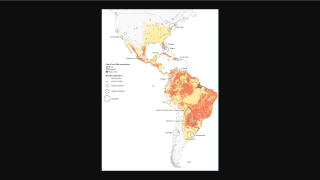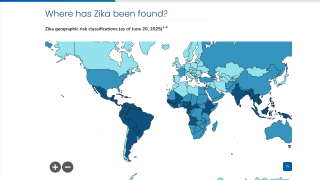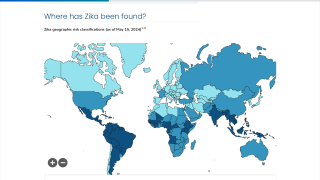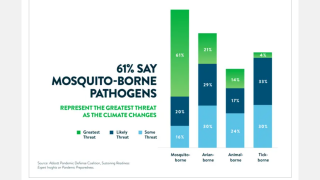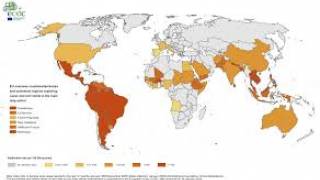Zika Virus Out-Smarts Self-Care System to Attack Host

Through the initial five months of 2025, Zika virus (ZIKV) outbreaks continue as a significant, measurable public health concern worldwide.
In the Region of the Americas, over 12,600 Zika patients have been identified as of June 1, 2025.
Last year, 42,127 ZIka cases and two related fatalities were reported in the Americas in 2024, led by Argentina, Brazil, Bolivia, Colombia.
Foremost among public health leaders' focus is when a pregnant woman becomes infected with this mosquito-transmitted virus. While pregnant, ZIKV can induce severe defects of the fetal brain and, eventually, microcephaly in the infant.
To better understand this health risk, an Ohio State University (OSU) study published in the Proceedings of the National Academy of Sciences on May 23, 2025, reveals the biological secret to the Zika virus's infectious success.
These researchers found that Zika utilizes the host cells' own "self-care" system to clear away useless molecules, thereby suppressing the host proteins that the virus has employed to enter those cells in the first place.
They wrote in a press release on May 27, 2025, 'While these cell surface proteins are valuable for viral entry, they also have roles in producing an antiviral response. Before that can happen, the virus manipulates a process cells use to keep themselves healthy to lower the proteins' activity, clearing the way for unfettered viral infection.'
'Though other viruses, such as HIV, are known to silence host receptors that let them into cells, Zika is unusual for having at least three of its proteins that can get the job done,' said Shan-Lu Liu, senior author the study and a virology professor in the Department of Veterinary Biosciences at OSU.
"That's the most interesting part: It's amazing that not only one, but several Zika proteins can do this."
"We looked at two Zika virus strains and examined three physiologically relevant cell types. With both strains, we observed downregulation in all three cell types. It looks like this is an important mechanism," added Liu.
Although further research is needed to confirm this, there is a possibility that this mechanism is relevant to the Ebola virus, which utilizes the TIM-1 protein to access host cells, or to other pathogens in the same flavivirus family, including Zika, West Nile, yellow fever, and dengue viruses.
"The bottom line is this speaks to the co-evolution of viral-host interactions. The more important a host factor is to a virus, the more a virus is going to do to take control of it," Liu said. "Understanding these mechanisms is an important part of being prepared for emerging or reemerging viruses that cause infectious diseases."
As of June 2025, there are no Zika preventive vaccines available, and the U.S. CDC recommends pregnant women avoid visiting areas reporting Zika outbreaks.
Over the last few years, Zika cases have been reported in Puerto Rico, Costa Rica, and other tourist favorite destinations.
Our Trust Standards: Medical Advisory Committee
